Online puppy sales rise amid animal welfare concerns
- Published
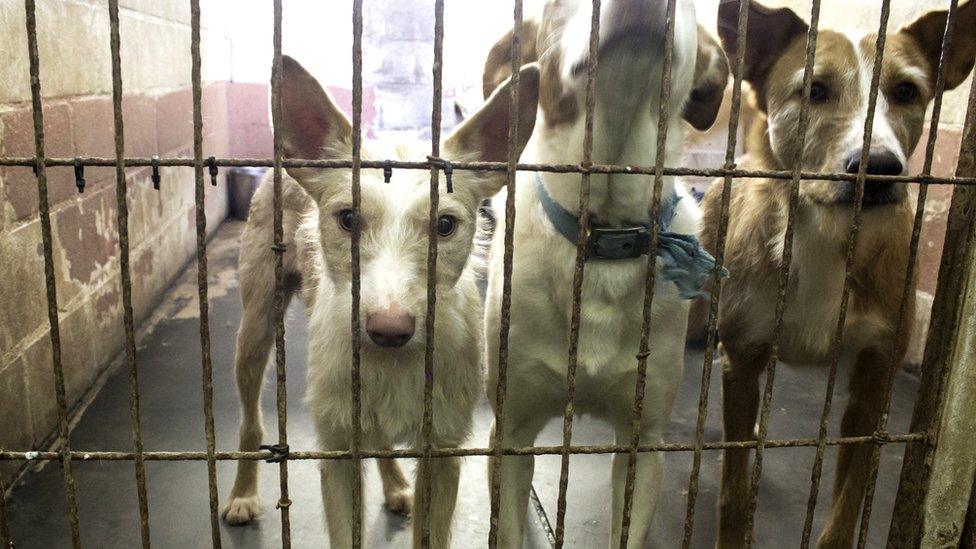
One in four puppies bought online dies before its fifth birthday
Scottish dog-lovers are being warned to check carefully before buying a pet online amid growing concerns about animal welfare.
One in five puppies bought online get sick or die in their first year, while sales in Scotland rose by 25% last year, according to the Kennel Club.
Buyers are being urged to make three "puppy checks" before agreeing a sale.
The Scottish government has said it will introduce laws to regulate the sale of young animals next year.
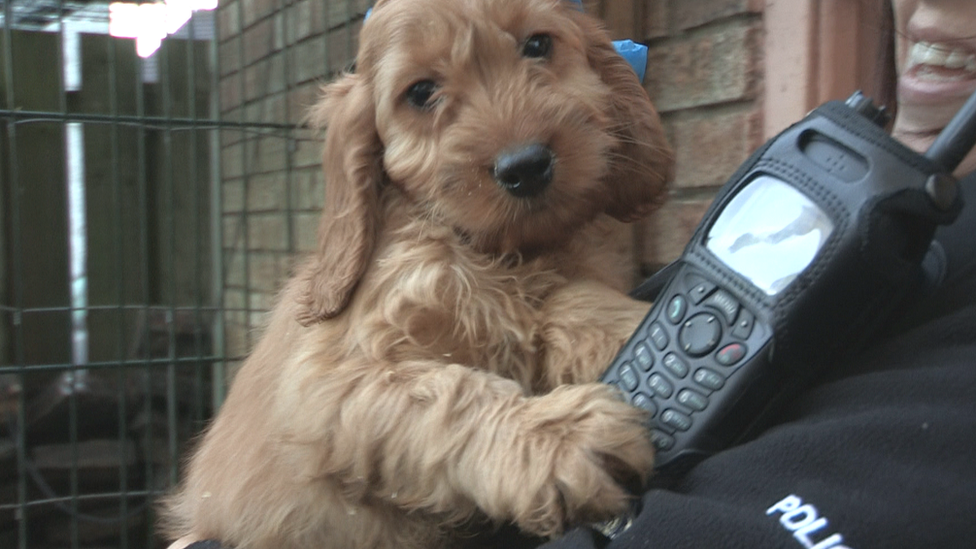
Illegal dealers may create multiple adverts providing the same mobile number and descriptions of puppies
Almost half of all dogs in Scotland are bought online and just over a quarter come from an approved breeder.
In the run up to Christmas, buyers are being asked to check for warning signs of illegally-bred puppies, particularly online, where the majority of these dogs are sold.
The checks include asking to see the puppy's mother and paperwork such as vaccination certificates. Potential buyers are also warned against trying to rescue puppies from illegal or dangerous situations.
Instead, the Buy a Puppy Safely campaign is urging people to "look beyond cute", walk away from the sale and phone the Scottish SPCA.
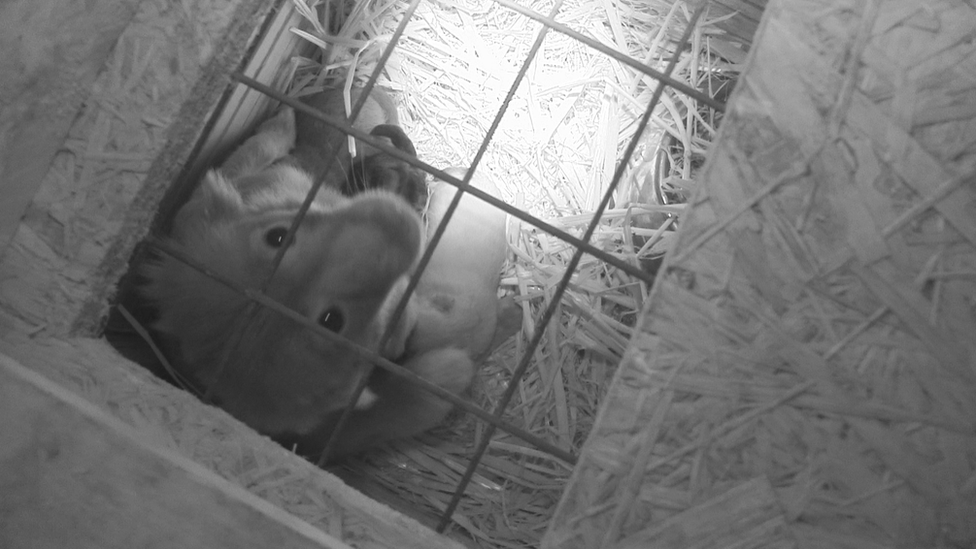
A puppy farm in the Republic of Ireland, where dogs are kept in illegal "growing room boxes"
The Scottish government's rural affairs and environment minister, Mairi Gougeon, said: "Puppy farms breed misery, and that misery is being fuelled by the huge demand for puppies and facilitated through online adverts and sellers.
"As people increasingly look online to buy a puppy, it is more important than ever that they know how to spot the signs of illegal dealers."
Illegally-bred dogs are more likely to have genetic disorders and deadly infectious diseases. They are also more likely to be aggressive, afraid and anxious, according to research from the Scottish SPCA and University of Edinburgh.

'Lucy's Law'

Most illegally-bred puppies are sold online through social media or small ad sites
There were fears Scotland could become a hub for illegal puppy trading, after legislation was passed this year in England and Wales banning the sale of young animals by anyone who was not involved in their breeding.
Known as "Lucy's Law", after a Cavalier King Charles Spaniel who died in 2016 having been raised on a Welsh puppy farm, the ban will come into effect in April next year.
The Scottish government has proposed similar legislation, which a spokesman said would be introduced "in 2020 to prevent third-party sales of puppies and kittens so that anyone wishing to buy a puppy will have to deal directly with the breeder".

Daisy's story

10-week-old Chihuahua Daisy was bought online

When Pauline Majerowska, a 25-year-old student from Clackmannanshire, spotted an advert for a puppy online, she phoned the seller and agreed to meet them straight away.
"The price seemed great, it was very cheap, but looking back now, this was probably the first sign that something wasn't right," she said.
Her three-year-old daughter Anastasia was delighted. But things soon changed for the 10-week-old Chihuahua the family named Daisy.
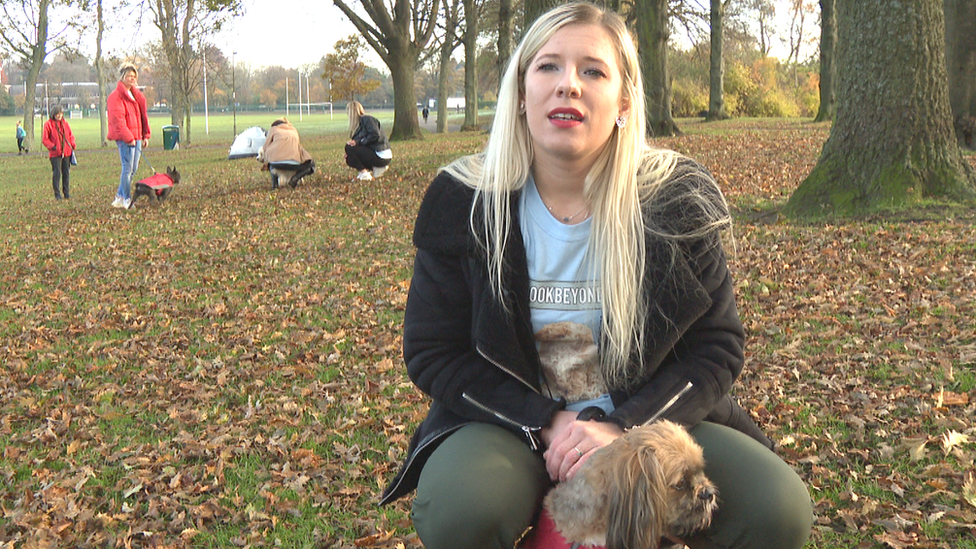
Pauline Majerowska urges people to visit dogs more than once before agreeing to buy them
Just five days after buying the dog for £350, it had been put down by a vet due to the pain the animal was in.
"My daughter saw her being sick and with diarrhoea from the parvovirus and she still mentions it now," Ms Majerowska said. "And to add to our shock, when we saw the vet, we were told we'd been sold a male dog.
"I tried calling the person back that we bought from but every time I do, the phone is switched off. When I'm out with Anastasia now, she'll still mention Daisy and look up at the sky."
- Published1 October 2019
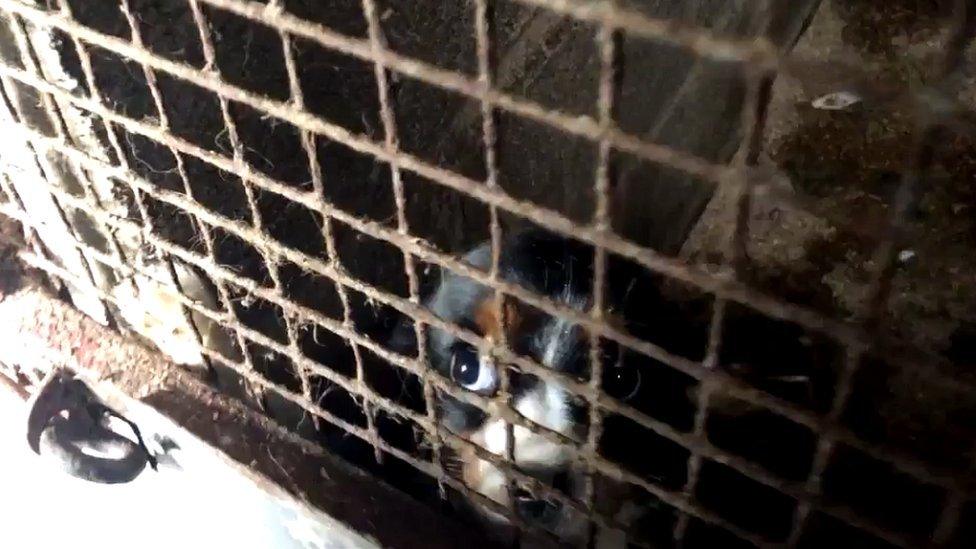
- Published2 September 2019
